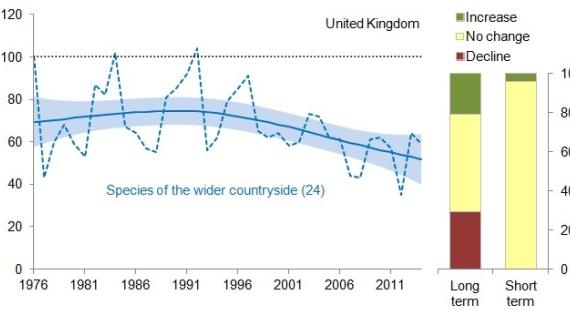Our analyses of animal and plant species trends produced from biological recording data contribute significantly to the UK Biodiversity Indicators. The indicators, produced since 2007, track progress towards meeting national and international biodiversity targets. They show whether different categories are improving, deteriorating or had little change in the long-term (over decades) and short-term (five years). This evidence informs policy decisions and conservation action.
Extending scientific knowledge
Across most of the world there are insufficient resources to monitor the environment fully, whether the focus is on animals and plants, the state of habitats, the quality of air, freshwaters or our oceans. Citizen science - the involvement of volunteers in research and monitoring - comprises a range of approaches that has a long history in providing high quality data for analysis. This volunteer data recording is vital for extending scientific knowledge.
Discover some of the ways we are using citizen science data.

Quantifying changes in biodiversity
Pollinator monitoring
Pollinating insects play a vital role in our environment, ensuring that many of our crops and wild plants are able to set seed and produce fruit. We need to know how pollinator populations are changing, and with your help we are gathering data on a wide range of flower-visiting insects.
Monitoring the spread of invasive species
Detecting new outbreaks of pests, diseases and invasive species as early as possible mean we are better placed to undertake appropriate action. This is where citizen science can play a part. Records from volunteers can be acted upon and enable agency staff or conservation groups to respond rapidly. Records of ladybirds enabled us to track the spread of the harlequin ladybird in the UK. And the Asian Hornet Watch app encourages members of the public to be on the lookout for sightings of this species.
